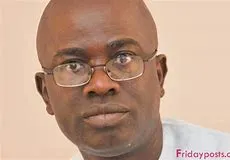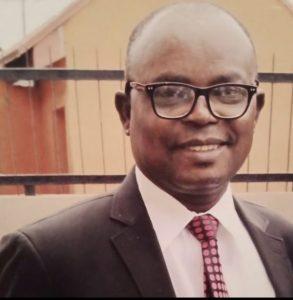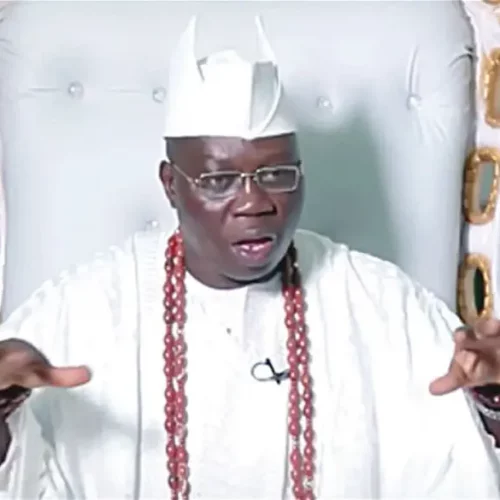My February 2013 column, ‘Public Service in Private Interest’, related how our public service has proven incapable of mobilizing scarce resources for the advancement of the common good. “While the world is tending towards smaller and more efficient government, what we have in our country today is a behemoth that largely serves its own interest”, I argued in the piece, drawing attention to the fact that sacrifice is alien to the average Nigerian politician. On Tuesday, former Central Bank of Nigeria (CBN) deputy governor, Dr Kingsley Moghalu spoke for many Nigerians with his crisp X (formerly Twitter) post: “There is a real problem when Nigeria is set to borrow another $1.5 billion from World Bank for budget support, and SUVs worth N160 million each are reportedly to be bought for 360 members of the house of representatives. We are not yet serious as a country.”
This recurring issue touches on transparency and accountability in the Nigerian public space. But we will never be able to address it until we stop being selective in our approach. That’s the main challenge. Following a similar controversy four years ago, after the National Assembly voted to procure SUVs (Sport Utility Vehicles) for each of the 479 members, then Senate Leader, Senator Yahaya Abdullahi, responded rather angrily. “To say that a senator of the Federal Republic cannot ride a jeep in Nigeria is an insult. The outcry over it is very unnecessary and insulting to the institution of the National Assembly and status of the federal lawmakers,” Abdullahi argued at the time.
However, it is in his justification that we can understand the mindset of the lawmakers. “When I was a Permanent Secretary, I know what ministers get. Each of the ministers move in convoy of three to four utility vehicles without anybody raising any eyebrow while some people, either because of ignorance or mischief, always cry to high heavens anytime management of the National Assembly wants to buy just one utility vehicle for a lawmaker,” said Abdullahi in 2019. “The work that we do at the National Assembly is more than the work of ministers and as representatives of the people, the money we spend on daily basis to all forms of indigent people, far outweighs whatever they, as ministers, or executive officers spend.”
This clear case of ‘Whataboutery’ is a tactic used to draw attention away from an issue by pointing fingers elsewhere, especially when accountability is demanded—an art perfected by Nigerian politicians. But Abdullahi also made a point that we should not ignore if we must deal with this vexatious issue that borders on insensitivity to the public mood. The entire National Assembly annual budget is a fraction of the funds being managed by Director-Generals in several federal government agencies. Unlike the lawmakers, these are people who did not go through the rigour of expensive elections. The same goes for Ministers. That these public officials are given a free pass on issues of accountability is why our federal lawmakers usually feel irritated whenever they buy their expensive cars and Nigerians make a fuss about it.
In August, for instance, it was reported that each of the 48 Ministers appointed by President Bola Tinubu would be given four official vehicles likely to include a Landcruiser, a Prado Jeep and two Hilux trucks. At the current market rate, everybody can do their arithmetic. That report has not been denied, yet it is not generating uproar like that of the lawmakers. So, effectively, the federal lawmakers are saying that focus should not only be on their Prado Jeeps—Nigerians should also look at those who add Hilux Vehicles to their own official fleet! In the United States from where we photocopied the presidential system of government, federal cabinet members aspire to be in the Senate. In Nigeria, Senators forfeit their seats to take ministerial appointments. We can connect the dots on where the ‘juice’ is.
I sympathise with our Distinguished Senators and Honourable Members for the way Nigerians pick on them, without holding ministers to the same standard. But I must say very quickly that they are missing the point. Lawmakers are expected to exercise oversight over the functions of the executive. And they cannot do that effectively with a mercantile approach to their job. Besides, many of our lawmakers compromise their authority with the way they relate with those over whom they should ordinarily serve as a check. At a made-for-Nollywood session three years ago, current senate president, Godswill Akpabio (who was then Niger Delta minister) told members of a House of Representatives committee to their faces that they are no better than legislative contractors. When a female lawmaker interrupted by questioning his claim, Akpabio dismissively retorted: “I just told you that we have records to show that most of the contracts in NDDC are given out to members of the National Assembly…”
The ‘Honourable Minister, please off the Mic’ retort that followed is not only etched in the memory of many Nigerians, but it also prevented Akpabio from further spilling the beans, although the ‘uncommon transformer’ must have forgotten all that now. The people can also recall that in 2005, Haruna Yerima, then a member of the House of Representatives, made a public confession after highlighting how members extort heads of the MDAs (ministries, departments, and agencies) they are expected to oversight. “Most of us come here to make money,” Yerima charged. “Most of our debates are beer parlour debates. No research. We argue like ordinary people on the streets.” Despite explaining that he did not mean to impugn the integrity of the whole House but rather to expose some individuals who were giving the legislature a bad name, Yerima was suspended with recommendation that he be taken to “a psychiatric hospital for examination.”
Whatever may have been the outcome of that psychiatric evaluation assuming the ‘legislative mandate’ was carried out, the issues Yerima raised eight years ago have refused to go away. So, the National Assembly must understand that this controversy goes beyond the acquisition of some expensive Jeeps, it is about whether public officials should continue to revel in ostentatious lifestyle at the expense of millions of Nigerians who are going through harrowing times. It is also about the moral authority to demand further sacrifice from the people. “We have an audacious vision of accelerated revenue collection and achieving an 18 per cent tax-to GDP ratio in the next three years to ensure financial sustainability and reduce the nation’s reliance on borrowing,” the new Federal Inland Revenue Service (FIRS) Chairman, Zach Adedeji said on Monday. But how do you expect citizens to pay tax when the revenues so generated would be spent to feed the vanities of some political fat cats? How many of our public officials would expend as much as a hundred million Naira of their own resources to purchase a vehicle for themselves, even if they have the money? By sanctioning such a jumbo amount of money just for one car, has the National Assembly not unwittingly endorsed legislative ‘ways and means’ (in their oversight of the MDAs) for members to keep up with their high maintenance status?

However, I subscribe to the notion that we cannot continue to pick only on the lawmakers about a problem that is also widespread within the executive, and at all levels. For instance, one of the newly elected governors has decided to spend between N3 to 5 billion to erect a new office because, as he argued, “It’s when you make your abode or office befitting that will add value and appeal to investors. Filthy environments and poor architectural outlook can discourage.”
In my column four months ago, ‘My convoy is longer than yours’, I concluded that while human nature often predisposes people to act mostly in pursuit of self-interest, the essence of government is to subordinate the personal convenience of individuals to the imperatives of the common good. In saner climes, rolling back conveniences, no matter how little, are usually some of the first steps public officials take when their country battles the kind of socio-economic challenges that we grapple with in Nigeria today. “Yet, the crisis of present-day Nigeria is that there is little in our code of public conduct that encourages moderation or sacrifice,” I surmised.
Let me make it clear here: I do not begrudge lawmakers or ministers who go about in expensive vehicles. My only concern is that for this democracy to survive, it is in their enlightened self-interest not to turn a deaf ear to the groans of the people.
BRI Reunion in Beijing
When you give roses to others, according to Chinese President Xi Jinping, in his keynote address yesterday to mark the 10th anniversary of the Belt and Road Forum for International Cooperation, “their fragrance lingers on your hand. In other words, helping others is also helping oneself. Viewing others’ development as a threat or taking economic interdependence as a risk will not make one’s own life better or speed up one’s development.” The initiative, according to Xi, is “based on the belief that flame runs high when everyone adds wood to the fire and that mutual support can get us far. Such cooperation seeks to deliver a good life not only to people of just one country, but to people in other countries as well.”
I arrived in Beijing on Tuesday for the 2023 edition of the Media Cooperation on Belt and Road which coincides with the larger BRI conference that has become an annual global event. No fewer than 131 media practitioners and managers from about 90 countries are participating this year. Although inaugurated in 2014 with sessions held in September/October every year, there has not been another in the past three years because of the Covid-19 pandemic. Meanwhile, from the 2017 edition in Dunhuang, Gansu Province of Western China to the 2018 edition in Boao, Hainan Province and the 2019 edition held in Beijing, I have been privileged to speak at these sessions. I will also be delivering a keynote speech today.
In all my interventions, I have always advocated a more beneficial relationship between China and Africa. In my 2018 speech titled, ‘Of China, Africa and ‘Colonial Master’’, I particularly stated that given the enormous financial investment China has made in Africa “it is in her interest that the relationship be seen as one based on shared humanity and prosperity, not as a new colonial master coming under the guise of loans and lopsided trade.” This aligns with the underpinning philosophy behind the BRI, as encapsulated by the Chinese president who initiated the idea. “We live in a world where history and reality meet, where opportunities and challenges coexist, and where humanity as a whole rise or fall together” according to Xi. “Countries must assist each other in times of need and choose win-win cooperation if we are to share the fruits of development.”
Four years ago in Beijing, I was inducted (along with 25 others from five continents) into the Belt and Road News Network (BRNN) Council which serves to promote harmony and development within the BRI implementing countries. Coordinated by ‘Peoples Daily’, the official newspaper of the central committee of the ruling Communist Party of China (CPC), with membership from 182 media organisations across about a hundred countries, the objective of the BRNN is to promote “mutual assistance, collaboration and exchanges among members.” My focus of course has been more on how Nigeria should adopt a strategic approach to managing relations with China and there can be no better time for that than now.
In August this year, the Economic Intelligence Unit (EIU) projected that by 2030, China will overtake the European Union (EU) as Africa’s biggest trade partner, with agriculture one of the areas being targetted. According to the report, bilateral trade between China and Africa rose 35% in 2021 from 2020 to $254 billion, with exports from the continent hitting a record $106 billion. Noteworthy in the report: “Nigeria is Africa’s biggest importer from China while South Africa is the biggest exporter.” The question for the Nigerian authorities, especially at such a time as this, is: What should we learn from South Africa so that we can also begin to derive maximum benefits from our relations with China?
This conversation has just started.



















